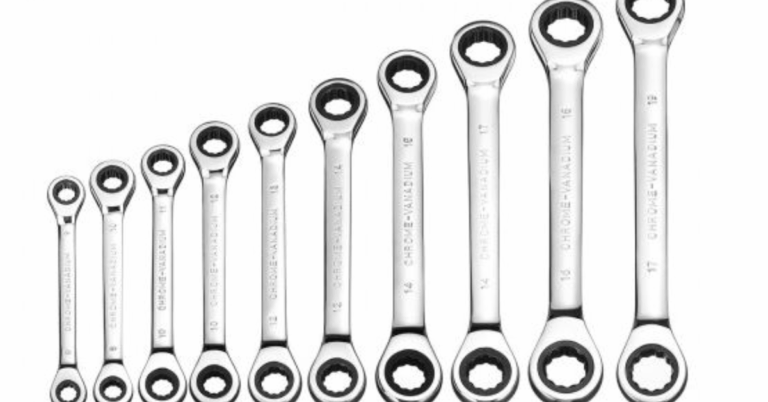Understanding SFA CRM Software: A Complete Guide for Modern Sales Teams
In today’s fast-paced business world, managing customer relationships effectively is vital for any organization aiming to stay competitive. Sales Force Automation (SFA) combined with Customer Relationship Management (CRM) offers a powerful solution for sales teams. This is where SFA CRM Software comes into play, enabling businesses to streamline sales processes, manage leads efficiently, and build stronger relationships with customers.
This comprehensive article will explore what SFA CRM software is, how it works, the key benefits, features to look for, and frequently asked questions related to the software.
What is SFA CRM Software?
SFA CRM software is a tool designed to automate and manage various sales tasks while maintaining strong customer relationships. It integrates the features of Sales Force Automation (SFA) and Customer Relationship Management (CRM) into a unified system. This dual functionality allows sales teams to focus on selling rather than getting bogged down by administrative work.
The software is especially useful in tracking sales activities, managing customer interactions, analyzing sales performance, and ensuring no opportunity is missed throughout the sales funnel.
Key Features of SFA CRM Software
When evaluating SFA CRM software, businesses should consider the following key features:
-
Lead Management: Capture, track, and qualify leads with ease.
-
Sales Pipeline Visualization: Monitor each stage of the sales process to identify bottlenecks and opportunities.
-
Automated Workflows: Automate repetitive tasks such as follow-up emails, reminders, and data entry.
-
Contact Management: Store and manage contact information centrally for better collaboration.
-
Task Management: Assign and monitor tasks within the sales team.
-
Reporting and Analytics: Generate detailed performance reports to make data-driven decisions.
-
Mobile Accessibility: Access sales data on-the-go through mobile apps.
-
Integration Capabilities: Seamlessly connect with other business tools like email, marketing platforms, and ERP systems.
These features ensure that SFA CRM software supports both operational efficiency and strategic decision-making.
Benefits of Using SFA CRM Software
Implementing SFA CRM software provides numerous advantages to businesses of all sizes. Here are the top benefits:
Increased Sales Efficiency
By automating repetitive tasks and organizing sales activities, sales reps can focus more on selling. SFA CRM software ensures that every lead and follow-up is systematically managed.
Better Customer Insights
With centralized customer data, the software helps businesses gain a better understanding of customer behavior, preferences, and buying patterns.
Improved Team Collaboration
The shared platform allows team members to collaborate more effectively, ensuring everyone is on the same page regarding the sales cycle.
Enhanced Forecast Accuracy
With real-time data and analytics, SFA CRM software provides better visibility into the sales pipeline, resulting in more accurate forecasting.
Reduced Manual Errors
Automation reduces the chances of human error, leading to more consistent and accurate sales data.
Who Should Use SFA CRM Software?
SFA CRM software is ideal for any organization that relies heavily on a structured sales process. Industries that can particularly benefit include:
-
B2B Sales Companies
-
Real Estate Agencies
-
Insurance Firms
-
Pharmaceutical Sales Teams
-
Manufacturing and Distribution Companies
-
IT and SaaS Providers
Sales managers, field representatives, and customer service teams can all leverage this tool to improve their workflow and performance.
Choosing the Right SFA CRM Software
Selecting the right SFA CRM software involves understanding your business needs and evaluating tools based on functionality, scalability, and user-friendliness. Here are some key factors to consider:
-
Ease of Use: The software should be intuitive and easy to navigate.
-
Customization Options: Look for customizable dashboards, workflows, and reports.
-
Customer Support: Ensure that the vendor offers reliable support and training.
-
Cost and ROI: Consider both the short-term and long-term costs and the value it delivers.
-
Scalability: Choose a solution that grows with your business needs.
Plumb5 offers one such powerful solution, tailored to deliver end-to-end sales automation and CRM functionality.
Implementation Tips for SFA CRM Software
To maximize the value of your SFA CRM software, follow these best practices:
-
Train Your Team: Conduct thorough training sessions to familiarize your sales team with the software.
-
Define Clear Goals: Establish what you aim to achieve with the implementation—higher conversions, improved tracking, etc.
-
Monitor Progress: Use built-in analytics to assess how well the software is performing.
-
Seek Feedback: Regularly collect feedback from users to identify pain points and areas for improvement.
By focusing on these areas, your team can fully leverage the power of SFA CRM software.
Common Challenges and How to Overcome Them
Despite its benefits, organizations may face challenges when implementing SFA CRM software:
-
Resistance to Change: Employees may be hesitant to adopt a new system. Overcome this with proper training and communication.
-
Data Migration Issues: Transferring data from old systems can be complex. Plan a phased migration strategy.
-
Overwhelming Features: Some software tools offer too many features, causing confusion. Customize the tool to meet only your immediate needs.
Overcoming these challenges ensures a smoother transition and better software adoption.
How SFA CRM Software Supports Data-Driven Sales
In the modern sales landscape, decisions need to be backed by data. SFA CRM software helps businesses by:
-
Tracking customer interactions
-
Analyzing sales trends
-
Measuring individual and team performance
-
Identifying high-performing products or services
These insights allow businesses to fine-tune their strategies for greater impact.
Future Trends in SFA CRM Software
The future of SFA CRM software lies in AI-driven automation, predictive analytics, and deep integration with marketing platforms. Some emerging trends include:
-
AI-Powered Sales Insights
-
Chatbots for Lead Qualification
-
Voice Recognition for Data Entry
-
Behavioral Analytics
-
Predictive Lead Scoring
Staying ahead of these trends ensures your business remains competitive and agile.
Frequently Asked Questions (FAQs)
What is the difference between SFA and CRM?
SFA (Sales Force Automation) focuses on automating sales tasks and processes. CRM (Customer Relationship Management) focuses on managing customer interactions and relationships. SFA CRM software combines both for a more complete sales solution.
Can small businesses benefit from SFA CRM software?
Yes. Small businesses can streamline sales processes, reduce manual workload, and improve customer engagement using SFA CRM software.
Is it difficult to integrate SFA CRM software with existing tools?
Most modern SFA CRM software platforms are designed for seamless integration with tools like email, calendar apps, marketing software, and ERPs.
How secure is my data in SFA CRM software?
Reputable SFA CRM software providers offer high-level data security, including encryption, access controls, and compliance with data privacy regulations.
How long does it take to implement SFA CRM software?
Implementation can take a few weeks to a few months depending on the complexity of your business and the features you require.
Conclusion
SFA CRM software is a critical tool for modern businesses looking to enhance sales performance and customer engagement. From automation to analytics, the software supports a more streamlined and efficient sales process. By choosing the right platform and implementing it strategically, businesses can unlock significant growth opportunities.







